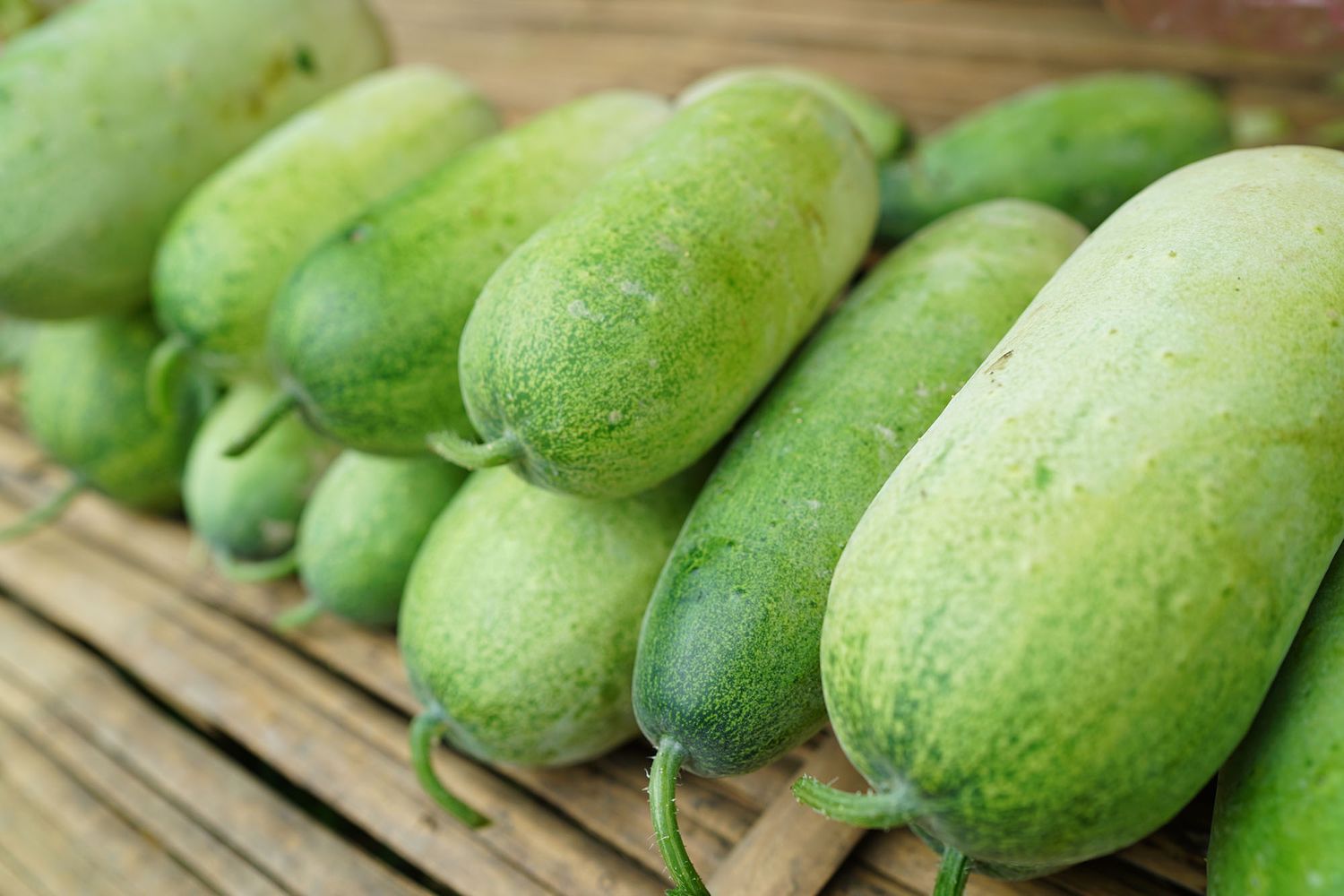
Winter melon, also known as ash gourd or white gourd, is a fascinating fruit that often gets overlooked. Ever wondered why it's called a melon when it doesn't taste sweet? Winter melon is unique because it can grow to an impressive size, sometimes reaching up to 80 pounds! This versatile fruit is a staple in Asian cuisine, used in soups, stews, and even desserts. Its mild flavor absorbs spices and seasonings well, making it a culinary chameleon. Winter melon is also packed with nutrients like vitamin C, fiber, and antioxidants. Curious about more interesting facts? Let's dive into the world of winter melon!
Key Takeaways:
- Winter melon, also known as ash gourd, is a versatile fruit with low calories, high fiber, and vitamin C. It's used in soups, stir-fries, and even candied in desserts.
- Winter melon is a staple in Asian cuisine and holds cultural significance, symbolizing longevity and good health. It's also a popular ingredient in Chinese traditional dishes and festivals.
What is Winter Melon?
Winter melon, also known as ash gourd or white gourd, is a unique fruit often used in Asian cuisine. It has a mild flavor and a texture that makes it versatile in both savory and sweet dishes. Let's dive into some fascinating facts about this intriguing fruit.
-
Scientific Name: The scientific name for winter melon is Benincasa hispida.
-
Origin: Winter melon is native to Southeast Asia and has been cultivated for centuries.
-
Appearance: It has a waxy, green outer skin and white, spongy flesh inside.
-
Size: These melons can grow quite large, sometimes reaching up to 80 centimeters in length.
-
Weight: A single winter melon can weigh anywhere from 4 to 40 kilograms.
Nutritional Benefits of Winter Melon
Winter melon isn't just tasty; it's also packed with nutrients that can benefit your health in various ways.
-
Low in Calories: Winter melon is very low in calories, making it a great addition to a weight-loss diet.
-
Rich in Fiber: It contains a good amount of dietary fiber, which aids in digestion.
-
Vitamin C: This fruit is a good source of vitamin C, which boosts the immune system.
-
Antioxidants: Winter melon is rich in antioxidants that help fight free radicals in the body.
-
Hydration: With a high water content, it helps keep you hydrated.
Culinary Uses of Winter Melon
Winter melon is a staple in many Asian kitchens. Its mild flavor makes it adaptable to a variety of dishes.
-
Soups: Often used in soups, winter melon absorbs the flavors of the broth and other ingredients.
-
Stir-fries: It can be sliced and added to stir-fries for a crunchy texture.
-
Candied: In some cultures, winter melon is candied and used in desserts.
-
Juice: Winter melon juice is a popular beverage in many Asian countries.
-
Pickles: It can also be pickled for a tangy snack.
Growing Winter Melon
If you're interested in gardening, winter melon can be a rewarding plant to grow.
-
Climate: Winter melon thrives in warm, tropical climates.
-
Soil: It prefers well-drained, fertile soil.
-
Watering: Regular watering is essential, especially during the fruiting stage.
-
Harvesting: The fruit is usually harvested when it reaches full size and the skin turns a dull green.
-
Pests: Common pests include aphids and fruit flies, which can be managed with organic pesticides.
Cultural Significance of Winter Melon
Winter melon holds a special place in various cultures, especially in Asia.
-
Chinese Cuisine: In Chinese cuisine, winter melon is often used in traditional dishes like winter melon soup.
-
Festivals: It is sometimes featured in festivals and celebrations due to its size and versatility.
-
Medicinal Uses: In traditional Chinese medicine, winter melon is believed to have cooling properties and is used to treat various ailments.
-
Symbolism: In some cultures, winter melon symbolizes longevity and good health.
-
Art and Literature: Winter melon has also been depicted in art and literature, symbolizing abundance and prosperity.
Winter Melon Wonders
Winter melon, also known as ash gourd, is more than just a vegetable. Packed with nutrients, it offers numerous health benefits like aiding digestion, boosting immunity, and promoting hydration. Its versatility in cooking makes it a staple in many Asian cuisines, from soups to desserts. Beyond the kitchen, winter melon has uses in traditional medicine, helping with ailments like coughs and inflammation. Growing this plant is relatively easy, making it a great addition to home gardens. With its long shelf life, winter melon can be stored for months, ensuring you have a healthy ingredient on hand. Whether you're looking to improve your diet or explore new recipes, winter melon is a fantastic choice. So next time you're at the market, consider picking up this nutritious and versatile vegetable.
Frequently Asked Questions
Was this page helpful?
Our commitment to delivering trustworthy and engaging content is at the heart of what we do. Each fact on our site is contributed by real users like you, bringing a wealth of diverse insights and information. To ensure the highest standards of accuracy and reliability, our dedicated editors meticulously review each submission. This process guarantees that the facts we share are not only fascinating but also credible. Trust in our commitment to quality and authenticity as you explore and learn with us.


